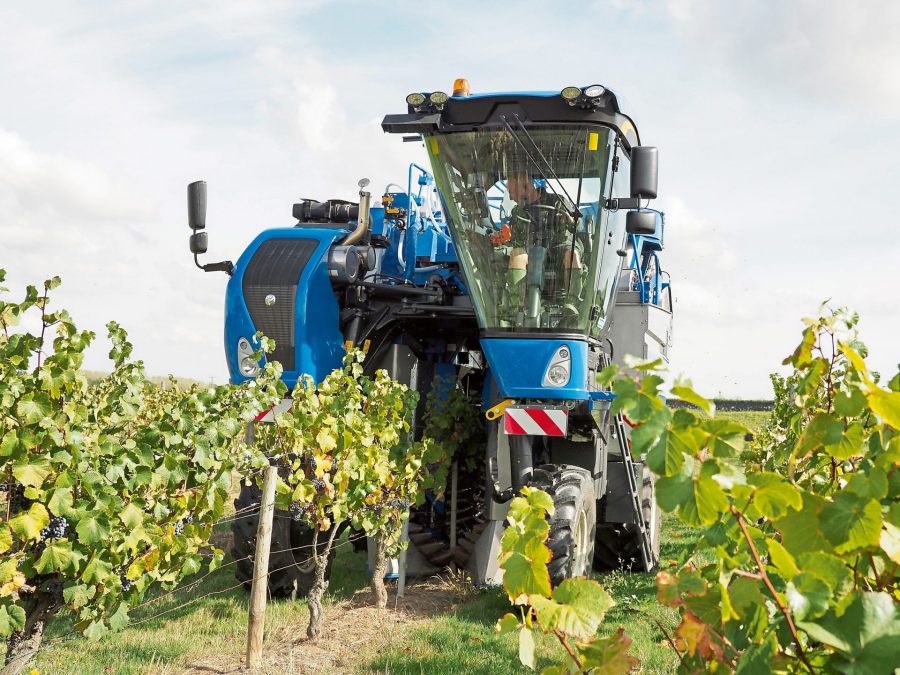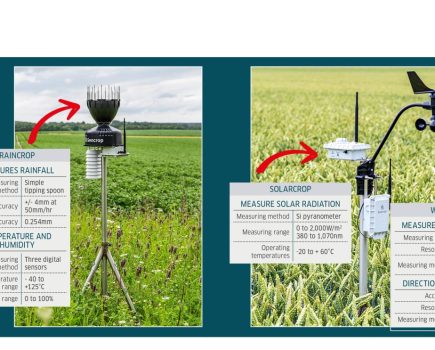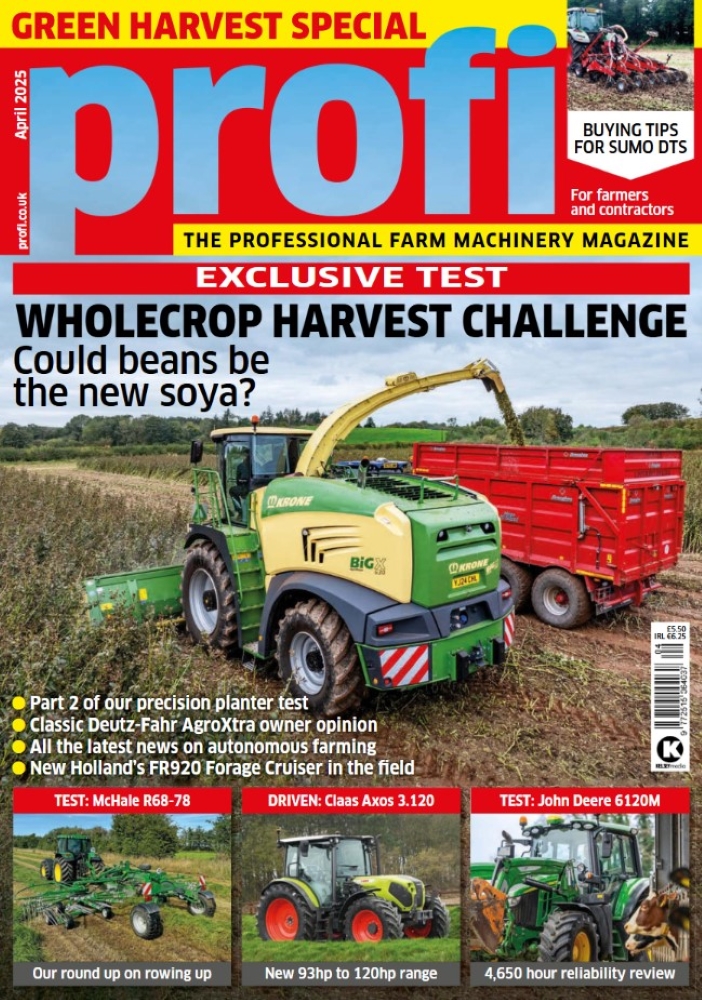Grapes are becoming an increasingly viable crop within the UK as global warming takes effect and consumer tastes embrace domestically grown wines. Sales of English and Welsh wines have risen by 69% since 2019 — from 5.5m bottles in 2019, up to 7.1m in 2020, growing to 9.3m in 2021. Hectarage has more than doubled in just eight years, and more than quadrupled since 2000; it now stands at approximately 3,758 hectares under vine.
Compared to the many large-scale growers in Bordeaux, Chile and the Napa Valley, British vineyards are quite small, and, while there is a developing market for specialist machinery, vine growing has traditionally remained labour intensive. But today’s tricky labour situation means idyllic visions of pickers harvesting grapes by hand on sun-soaked hillsides could become a thing of the past even in Britain. With this in mind the debut of a state-of-the art self-propelled New Holland Braud grape harvester in an Essex vineyard is less surprising than you’d think.
Grapes in Essex
New Hall Vineyards was established in the 1960s in Purleigh near Chelmsford, where the low-lying valleys and sea breezes minimise frost risks — in 2017, when many vineyards lost 50% of their grapes to frost, this Essex vineyard lost just 5%. The clay soil type suits specific grapes such as pinot noir and bacchus, and it is on these varieties that the business has been developed. With 50ha under vine, yield is 220-240 tonnes of grapes per year, and the onsite winery makes 200,000 litres per year from the business’s own grapes and a selected few contracts.
Owner Chris Trembath farms 600ha of arable land at Great Dunmow, and this son-in-law of one of New Hall Vineyards’ founders took over its running in 2015. At the vineyard he has traditionally employed teams of 20 pickers to harvest the crop by hand each year.
For more up-to-date farming news and reviews click here and subscribe now to profi for just £3.99 an issue.






